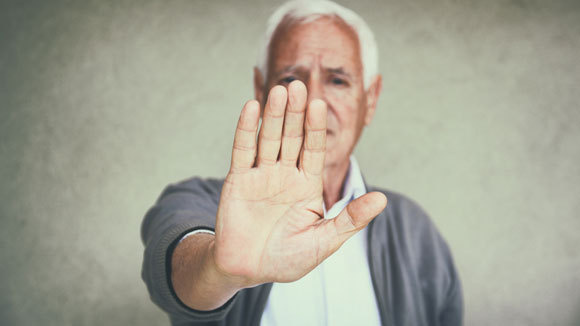
We’re a funny lot, aren’t we? People, that is. While we’re more highly evolved intellectually than animals, we definitely have an evolutionary tendency to “run with the herd.”
The idea of social circles takes me right back to junior high. Tweens and teens are constantly testing one another through rejection and acceptance, unconsciously laying the groundwork for how they’ll behave socially as adults.
During my adolescence, I was constantly picked on. I remember being the new kid at a small private elementary school in sixth grade. One girl in particular would push me as hard as she could and taunt me whenever and wherever she was able. Other kids often laughed and joined in.
I tried to fend for myself—screamed at them to leave me alone—but my words fell on deaf ears. It got so bad that I told my parents I wouldn’t go to school anymore. They sat me down, said I had no choice, and my dad explained to me exactly how to handle the situation.
I was supposed to tell the teacher I needed to make an announcement to my class before we were dismissed for the day. My announcement was to be a direct speech to these mean classmates, letting them know their behavior needed to stop immediately.
You may not believe it, but I actually did this.
And it worked like a charm.
They started talking to me as a peer, inviting me to social gatherings, and generally stopped treating me as an outsider.
What a lot of us don’t realize is that this kind of experience—triumphing over social challenges in childhood—teaches us to trust our strength, to honor our character, and to learn from the wisdom of our elders. But if we didn’t develop all those coping mechanisms in childhood, how can we, as adults, tackle our own exclusionary habits and defense mechanisms?
Do we still have the potential to truly learn to treat others as we’d like to be treated?
The answer is yes. And our lives will be better for the effort.
Adulthood requires self-awareness and well-tested coping mechanisms. Clique-ish behavior and a deep yearning to belong are not necessarily traits everyone outgrows. And that need to belong manifests differently in every person.
For example, my knee-jerk, self-protective reaction is to diminish people I see as having an overblown sense of self-importance. I judge those who exclude others too quickly. That is its own kind of bullying and something I’m consciously trying to stop doing. I haven’t yet evolved to my highest level of consciousness. Who knows when I will?
But I’ll never stop trying. Here are a few of the key elements to building healthy boundaries and experiencing open, love-based relationships I’ve found on my journey:
1. Know thyself.
Learn your limits. Find awareness of what you can and cannot tolerate in your relationships. You’ll be better equipped to respond healthily and considerately (of both yourself and others) if you know your boundaries.
I remember a time in my early twenties when I had to assert myself to an agent. For whatever reason, she blocked me from certain business opportunities. I decided that I deserved more.
I directly confronted her about the issues she was creating for me and took the matter to her boss. He immediately assigned another agent to me, and my career flourished.
2. Try to not be reactive.
This is so difficult—especially when someone is treating you unkindly or gossiping about you. A negative reaction on your part could affect other people’s perceptions of you. Avoiding reactive behavior is achieved by a consistent effort not to take anything personally and/or make assumptions.
If someone else is treating you badly, it has more to do with them than with you.
3. Focus on your sense of self.
Don’t waste energy speculating about what others think of you. Focus on honing a strong sense of self, and keep a cool head when you feel threatened. That’s key to successfully navigating any uncomfortable situations.
People determine societal norms. That means we can change them. The extent to which we value ourselves determines how successfully we can navigate our social circles and manifest the lives we want.
Source: Mind Body Green
 We are sharing information for knowledge. Presented by. SocialDiary.Net
We are sharing information for knowledge. Presented by. SocialDiary.Net



